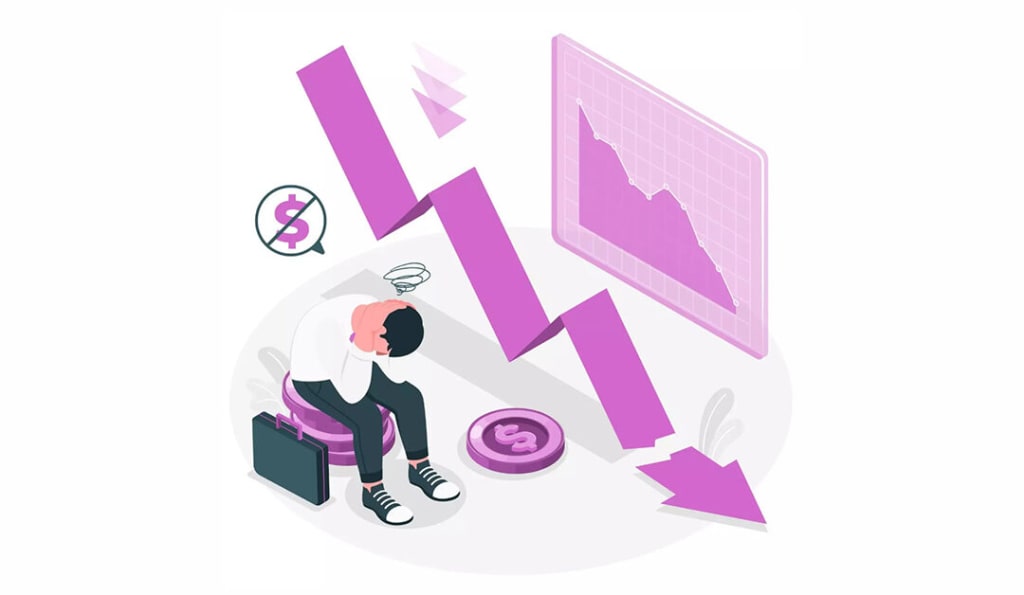Impact Of Recession Of The Economy On Mental Health
During present times, we have seen that recession across the world have been affecting society in many ways and not just economically.

During present times, we have seen that recession across the world have been affecting society in many ways and not just economically. The economy’s current state plays a huge role in the livelihood of people which in turn impacts their mental health. Financial crises have a major impact on people’s health and happiness, which is especially true for vulnerable groups of individuals. Living and working circumstances have significantly deteriorated in nations that were severely hit by the recent recession.
It is important to look at a human being as a whole and not just as parts. One of the reasons this is important is because it allows everyone to understand that many factors can influence and impact the individual. The increasing socioeconomic risk factors associated with the current crisis, such as unemployment, financial stress, debts, and employment-related issues, are likely to aggravate and worsen mental health issues. People going through this significant life turmoil are more vulnerable to mental illness. The family is the most important environment for children’s healthy development, hence economic strain and unemployment have a terrible effect on families, especially children.
In a study (Frasquilho et al., 2015 ) it was seen that an increasing body of credible evidence suggests that economic downturns may be linked to poor population mental health outcomes. There appear to be psychological health issues, common mental disorders, substance problems, and suicidal behaviours as a result of the recession. The unemployed, those who are in debt or are having financial troubles, those who already have mental health issues, and families with children are some of the demographics that may be particularly vulnerable to the effects of recessions. It is well-known that serious public health issues such as mental illness and drug abuse contribute significantly to the global burden of disease in high-income nations. It is a collective responsibility to act and minimize these intolerable expenses because economic downturns may worsen risk factors for mental illness and suicide.
One can also see that in another study done by Kristan & David (2012), the economic crisis was predicted to have a negative impact on mental health, possibly leading to an increase in the number of suicides and alcohol-related deaths in affected nations. The negative effects of the global financial crisis on health may be less severe in countries with stronger social safety nets. According to this research, a number of policy changes can lessen the economic crisis’s negative effects on mental health. It shows that the health sector cannot attain good mental health on its own.
When one thinks about what intervention can be done to improve the overall health and well-being of the collective. The economic crisis offers a chance to improve policies that would not only lessen the effect of the recession on suicide-related deaths and injuries as well as the economic and health costs associated with alcohol use disorders and impaired mental health throughout all economic sessions. It is crucial to keep in mind that investing in mental health assistance will pay off both in prosperous and difficult economic times.
The financial crisis only strengthens the compelling public health and economic arguments in favour of comprehensive coverage of community mental health care, adequate social protection systems, active labour market programs, family and parenting support, debt relief, and effective alcohol control policy. Budgeting for measures that keep people employed, assist those who lose their jobs and their families with the negative effects of unemployment, as well as making it possible for the unemployed to rapidly find new work are all options that governments should take into consideration in order to protect populations both now and in the future.
The study (Kristan & David, 2012) continues to suggest that it should be stressed that a recession may also lead to healthy lifestyle adjustments, without drawing attention away from the hazards the current global economic recession poses to mental health. If one works fewer hours, people might have more free time to spend with their kids, family, and friends. A slower pace of life may result from less economic activity, which also strengthens social capital by increasing opportunities for civic engagement and networking.
A more rapid economic recovery is expected to be supported by options that improve the population’s mental health. Policy actions can either harm or strengthen population health. Mental capital, or population well-being, is an essential requirement for a thriving economy with high productivity. The pillars of population well-being that support mental health are the key to unlocking the economic crisis. Healthy families, compassion for individuals affected by the crisis, and equitable and accessible community mental health care are significant pillars. To rebuild a healthy economy, solid mental health foundations must be created and firmly anchored.
– Urveez Kakalia and Krupa Abraham.
About the Creator
iDigitize Infotech LLP
We at iDigitize, elevate Brands with impactful digital marketing experiences & web development services. From developing your web presence to conveying your brand’s story, we align design & development with effective strategies






Comments
iDigitize Infotech LLP is not accepting comments at the moment
Want to show your support? Send them a one-off tip.